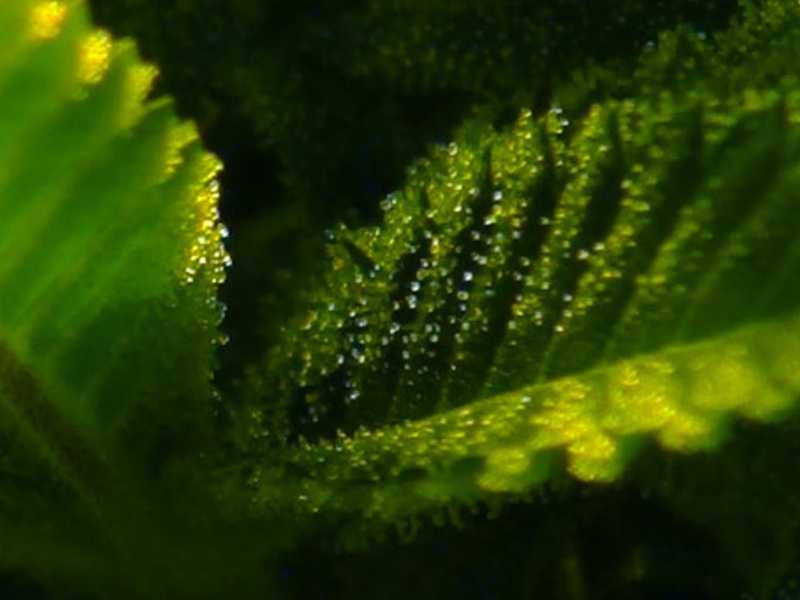Often confused with tetrahydrocannabinol (THC), [tetrahydrocannabinolic acid (THCA)] is a little-known cannabinoid that has shown great medicinal promise. THCA is often misunderstood due to its short lifespan in the cannabis plant; it only exists in cannabis when the plant is alive and degrades into THC when the plant is dried or combusted. Though THCA becomes THC later in its lifespan, THCA has none of the psychoactive properties that THC is known for.
The confusion between THCA and THC can make it hard to measure its levels within the plant. If a grower lab tests its cannabis product while it’s still fresh and alive, the results may show large amounts of THCA. However, if the lab continues on to cure the marijuana, that THCA will no longer be present. At this point, the plant will have higher levels of THC than previously shown.
To understand the future potency of a cannabis strain before it has been cured, the percentage of THCA must be multiplied by 8.77, then added to the percentage of THC in the plant. This equation provides the producer or patient with an accurate estimate of the amount of THC that will be present in the plant after it has been cured.
Medicinal Benefits of THCA
Another similarity between THCA and THC is that they’re both often the most abundant cannabinoid in a plant, depending on the time at which it’s tested. THCA on its own, however, has been seen to have many benefits in the limited number of studies that have been conducted on the plant.
Studies have found THCA to have anti-inflammatory, neuroprotective, anti-emetic and anti-proliferative properties, all which could make it medically beneficial for a range of conditions.
This variety of potential medicinal benefits could make THCA an important cannabinoid for patients with medical conditions that already benefit from marijuana. Its anti-inflammatory properties could make it beneficial for those with pain, muscle spasms, PMS-related cramping or autoimmune conditions.
The neuroprotective qualities could aid patients with neurodegenerative disorders like Parkinson’s disease as well as those with dementia. THCA’s anti-emetic properties could help people with stomach conditions from nausea to lack of appetite. It’s also believed that THCA could have anti-proliferative properties that could help slow the rate of certain diseases and cancers.
Though all of these potential benefits of THCA need continued research to be definitively proven, the possible potential of the cannabinoid cannot be ignored. THCA could have even more benefits than we currently know and understand, and in turn it could potentially add to the long list of medical benefits that people already experience from cannabis. One of the aspects of THCA that makes it particularly intriguing is, much like cannabidiol (CBD), its lack of psychoactive properties.
Grow Your Cannabis ...
If you’re interested in trying out THCA, you may have to search a bit to get your hands on some fresh cannabis. Growing your own cannabis varieties with high levels of THCA can be a great way to have access to it at all times. Once you have fresh cannabis, the most common way that people consume it to receive the optimal amount of THCA is through juicing. Cannabis juicing is beginning to gain traction as more people are realizing its medicinal benefits.
As with any other plant, raw cannabis juice can be extracted through a juicer. It’s important, however, that your juicer doesn’t heat the plant as it’s being extracted, or it could promote the transition from THCA to THC in the final product. Cannabis juice can be enjoyed as is, but most people find it more pleasing to combine cannabis with another juice. Carrot juice is known to be particularly good in combination with cannabis juice, which you can drink daily to get your dose of cannabinoids every morning.
